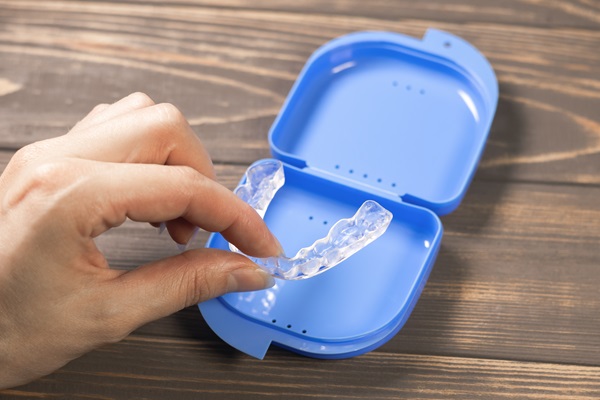The Difference Between Braces and Invisalign for Teens

If your child has extensive dental malalignment, Invisalign® for teens may not be appropriate. However, if the malalignment is relatively mild, you and your child may have the option of choosing between clear aligners and traditional braces. Comparing and contrasting the two treatments can help you decide which would most benefit your teen.
How are braces and Invisalign® for teens similar?
There are few similarities between braces and clear aligners, but understanding how they are similar can help you make an informed decision.
Cost
Generally, traditional braces and clear aligners fall into the same price range. However, the specific costs depend on individual factors, such as the extent of the malalignment.
Effectiveness
For patients who are candidates for Invisalign®, the two treatments are equally effective. However, clear aligners do not apply enough pressure on the teeth to correct severe cases of malalignment.
How are braces and Invisalign® for teens different?
While the end result may be similar, Invisalign® and braces are different in many ways.
Materials
Traditional braces are made of metal wires attached to brackets that adhere directly to your child's teeth. The brackets may be made of ceramic, but metal components are always. Invisalign® aligners are made entirely of plastic molded to the teeth for a snug fit.
Aesthetics
Traditional braces tend to be noticeable. Ceramic brackets may be clear or tooth-colored to be less obvious, especially at a distance, but from close up, other people will probably realize that they are there. On the other hand, invisalign® trays are made out of transparent material. Because they are molded precisely to the teeth, it is almost impossible for other people to see them unless they are looking for them specifically.
Removability
Braces are stuck on a patient's teeth and cannot be removed except by a provider. While effective treatment with clear aligners requires them to be worn for most of the day, they are taken out for eating and cleaning.
Hygiene
Maintaining good oral hygiene is at least as important for patients receiving treatment with braces or Invisalign® than for those who are not. Brushing and flossing are more difficult with braces because getting around and under the wires and brackets is challenging. With Invisalign®, brushing and flossing are no more difficult than without because the aligners are removed for dental hygiene. However, it is imperative that your child brush their teeth after every meal and perform the extra step of cleaning the aligners.
Comfort
The metal components required for traditional braces can irritate the soft tissues in your teen's mouth, including the tongue and inside of the lips. Because clear aligners are made of smooth plastic with no metal components, they cause little to no irritation and are generally more comfortable to wear. However, they can cause some tenderness of the teeth when your teen first receives each new set of aligners, comparable to what your teen would experience after adjusting their traditional braces.
Conclusion
While there are some superficial similarities between braces and Invisalign® for teens, there are many more differences. However, both can be effective for patients who are candidates.
Request an appointment here: https://www.bracesbyabbadent.com or call Braces By Abbadent at (563) 484-5202 for an appointment in our Dubuque office.
Check out what others are saying about our dental services on Yelp: Invisalign for Teens in Dubuque, IA.
Recent Posts
Invisalign® has changed how willing teenagers –– and everyone else –– are to start teeth straightening treatments. It provides an alternative to traditional metal braces that is virtually impossible to detect. Invisalign® treatments work the same way conventional braces work, the aligner trays exert a force on the patient's teeth pushing their teeth into better…
If your teenager requires teeth straightening it is time to make some choices. Choosing between Invisalign and braces can be difficult; each treatment straightens teeth to improve not only a teen's smile but overall health.1. How does Invisalign work?Invisalign often looks like the plastic retainers that some teenagers get when a metal braces treatment is…
Considering getting braces? Read on to learn more about ceramic braces. For individuals who want to straighten their teeth discreetly, ceramic braces are an excellent choice. They are a great method for straightening teeth without attracting too much attention. Metal braces were previously the standard for orthodontic therapy, but they are visible on the patient's…
Malocclusion or misalignment of teeth can severely impact your overall oral health and self-esteem. Many people opt for treatments to address various misalignment issues. Teeth straightening treatments have become more efficient and cost-effective over the years.Here are a few teeth straightening options you might want to consider if you are interested in straightening your smile: Clear…


